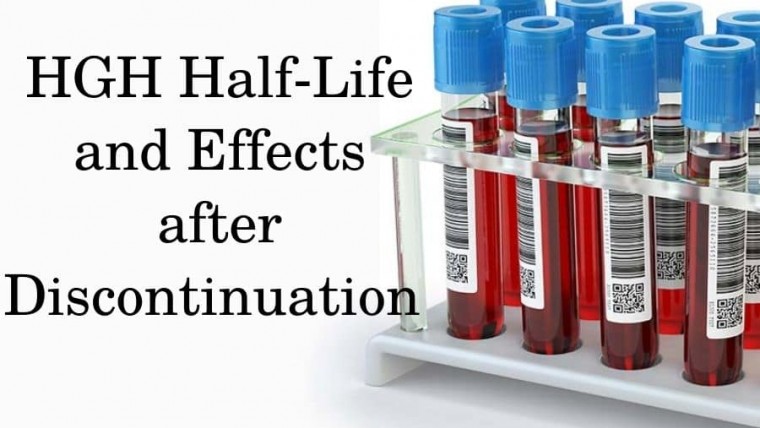In this article
Human growth hormone (HGH) is one of the many hormones that is produced by the pituitary gland. This important hormone is the main driver of cell repair, growth, metabolism, and in determining your body composition.
Growth hormone is also known to provide increases in strength, muscle mass, and offers you improvements in exercise and sports performance, all while improving your recovery times from both disease and injury. Having optimal levels of human growth hormone is important for your quality of life. Having low levels of this vital hormone may result in increased risks of gaining weight and becoming sick.
Is Growth Hormone Released During Sleep?
The time we spend in bed at night is of utmost importance to our bodies and minds. One such reason for sleep’s importance is that it is when your pituitary gland releases the majority of growth hormone to your body. As we age, growth hormone secretion during sleep decreases.
Furthermore, if you aren’t ensuring an adequate sleep schedule, the reduction in growth hormone released during sleep may result in you developing metabolic syndrome prematurely. It is during sleep that growth hormone is released in the most significant amounts.
Growth hormone secretion during sleep happens in waves, that coincide with what stage of sleep you are in. If you aren’t getting the right amounts of sleep, your body will not be staying in these vital sleep stages of long enough for sufficient amounts of growth hormone to be released.
What Stimulates Growth Hormone Release?
Deep Sleep
As we had mentioned previously one of the key times in which your body is primed to stimulate growth hormone release is during the stage of sleep known as deep sleep.
Deep sleep is the third stage of your cycle of sleep, and it is when our heart and breathing rates, blood pressure, and temperature are at their lowest.
In order to increase growth hormone during sleep, you’ll want to ensure you are spending as much time as possible in this deep sleep phase. As the name would imply, deep sleep is our deepest level of sleep, but it can often be interrupted by extraneous sounds, light, or factors such as a poor diet and high levels of stress. Try to eliminate these interruptions the best you can in order to get the most out of your time in bed.
Fasting
Fasting can stimulate growth hormone release in the short term. In one study, participants who were in a fasted state ended up with serum growth hormone levels increase by nearly 500 percent.
It’s not necessary to fast for multiple days at a time in order to stimulate increased growth hormone release. Simply employing the tactic called intermittent fasting may be enough.
Intermittent fasting is a way of eating where you abstain from consuming anything for the majority of your day, and then consume all your calories for the day in a restricted eating window. Typical intermittent fasting diet schedules include either a daily fast of 14 or 16 hours, with 10 or 8-hour eating windows respectively.
This may still sound harsh, but when you consider that 8 or so of these hours will be spent in bed, simply skipping breakfast and having an early dinner may be enough to gain the benefits of a fasted state.
A common concern of those hearing about intermittent fasting is that their metabolism may be negatively affected. There is nothing to worry about in this regard, though, as studies show that there is no difference in metabolism between those who maintain a traditional eating schedule and those who fast intermittently.
Intense Exercise
Another activity that stimulates increased growth hormone secretion is intense physical exercise. Researchers have come up with many different theories for why exercise has this effect on growth hormone secretion. It is thought mainly to be a result of your body responding to the damage to the muscle that occurs during physical activity.
Sufficient muscle breakdown comes as a result of intense exercise, no matter what sort you choose to partake in; Be it running, weight lifting, rowing, or cycling. As long as you are keeping the intensity up, you are likely getting its benefit.
If you are looking for a great way to get in some intense activity, while still having time to get on with the rest of your day, consider high-intensity interval training, also known as HIIT. HIIT is a form of activity that has you switching between brief periods of high-intensity activity and short rest periods. As a result of this back and forth in intensity, your heart rate goes up rapidly.
Due to the brief periods of rest, you are able to maintain this level of intensity for a longer period of time than if you were sticking to a steady, even intensity. As a result of this, you can work out for as little as 15 or 20 minutes and get the benefit of a much longer steady-state workout!
How To Increase Growth Hormone During Sleep
Regardless of whether you choose to adopt an intense workout routine or intermittent fasting, you’ll still be sleeping every night. Taking steps to increase the amount of growth hormone your pituitary gland produces throughout the night is a great way to enjoy its benefits.
Some good ways to improve the quality of your sleep, and so the amount of growth hormone produced include:
- Avoid caffeine 8 to 10 hours before bed
- Read a book an hour before bedtime
- Limit your screen time an hour before bed
- Keep your bedroom at a comfortably low temperature
At what stage of sleep is the growth hormone released?
It is during stage 3 of your sleep cycle that the growth hormone is released. This sleep phase is also known as a slow-wave or deep sleep and accounts for roughly a quarter of the time you sleep every night. This stage of sleep is when most of your recovery takes place.
How many hours of sleep do you need for growth hormone?
To get the most out of your sleep, and produce as much growth hormone as possible, you’ll want to be sure to get between 7 to 9 hours of sleep nightly.
Methods To Increase The Level Of Growth Hormone
1. Lose Body Fat
If you’re seeking out methods to increase your body’s levels of growth hormone, it is in your best interest to drop some of the fat from your body. Your body’s ability to produce growth hormone in sufficient amounts is conversely related to the amount of body fat you have. The more body fat you have, the less growth hormone your body produces.
One study looked at groups of individuals, with one group having three times the amount of stomach fat as the other. The group with the extra body fat ended up with half the amount of growth hormone to that of the learner group.
Researchers point out that this effect is more prominent in men, though it still plays a key role in growth hormone production in women as well.
In another study, it was determined that participants who were obese had lower levels of both growth hormone and IGF-1, another growth-related compound. After these participants lost a good deal of weight, these levels returned to more healthy levels.
2. Reduce Sugar Intake
Higher levels of insulin can slow the release of growth hormone in our bodies. Sugar and refined carbs are what is responsible for elevated insulin levels in most individuals, so taking the necessary steps to limit your sugar intake is important. It was determined that diabetics had 3 to 4 times less growth hormone than non-diabetics.
Aside from sugar’s role in elevating your insulin levels, consuming too much added sugar is one of the leading causes of weight gain for many, which as we mentioned before, is another factor in reduced levels of production.
3. HGH Therapy
If you already have your weight in check and are keeping to a healthy, low-sugar diet, you might still be wondering what you can do to increase your body’s levels of growth hormone. One of the single most effective ways to boost your levels of growth hormone is to undergo growth hormone therapy.
HGH therapy is especially effective in providing your body with elevated levels of growth hormone and can go on to even reverse signs of aging.
Therapy is best when it started around the age of 30, though it is beneficial for most regardless of age. Some of the benefits of growth hormone replacement therapy include:
- Lower levels of abdominal fat.
- Increased muscle size
- Wrinkle reduction
- Increases in bone density
- Stronger immune system
- Increased bone marrow cell production, resulting in more red blood cells
Wrapping Up
Human growth hormone is an amazingly beneficial hormone, and as its levels decline as we age, seeking out ways to improve production is in your best interest. Ensuring you get a good amount of quality sleep every night is a great way to improve your levels, though sticking to a healthy low-sugar diet will also be beneficial.
HGH therapy is a relevant option, and if you are seeking out optimal levels of this vital hormone, it may be your best option.





